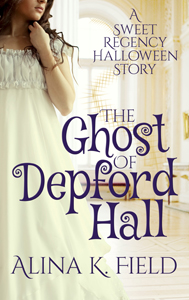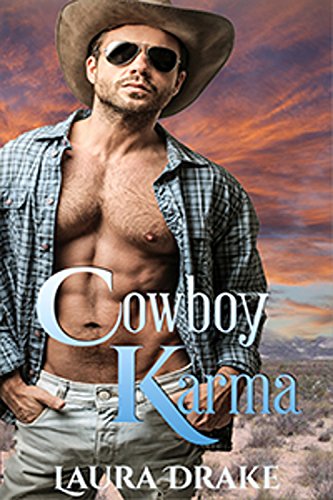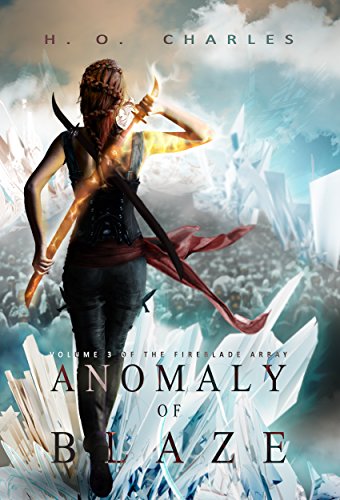
Creating a Writing Journal
I wanted to stop forgetting appointments and lunches with friends. I wanted to keep track of events days, weeks, months and even years into the future. After 18 months of watching YouTube videos, I discovered a minimalist system that has worked well for me. I’ve been bullet journaling (called Bujo on YouTube) for two years now. It has revolutionized and simplified my life.
The must dos for creating a personal journal are fairly simple:
- The first one to three pages should be an index. It doesn’t have to be fancy. For example:
p.6 January Brain Dump. - Since I create my journal from a blank, spiral bound, notebook (dotted pages), I draw in my own calendars. Each of my journals lasts me about 6 months. Thus, I draw six monthly calendars. I use two facing pages for each month, so the calendars are large enough to hold important events such as dentist appointments or writing dates with my creative buds.
- Immediately following the monthly calendar pages, I use two facing pages to keep track of events that are scheduled more than 6 months out.
- For each month I also create a Brain Dump page. On this page I write all of things I want to remember as they come along. For example, replace the whole house water filter or order a book from interlibrary loan.
- Finally, every week on Saturday evening, I create a weekly spread. I use 4 pages divided length-wise to create space for Sunday-Monday, Tuesday-Wednesday, Thursday-Friday, Saturday-Tasks. On these pages I write down my to-do lists for that day. I use the Tasks section (the second half of the Saturday page) as a way of keeping track of what I want to do each week. The daily to-do lists are easy to create. I review the events scheduled for that week on the monthly calendar. I also refer back to the previous week and make sure that I reschedule any uncompleted tasks. Finally, I check the brain dump page. Are there tasks there that I need to schedule?
And that’s it. Short, simple, and most of all, in one place.
Last year I decided to also create a Writing Journal. When I first started my writing journal, I kept track of how many hours I wrote each day. I no longer do this. I write incessantly. However, if you find that your writing time is being co-oped by your day-job, your family obligations, etc., you may wish to add a time-tracker to help you prioritize and regain control of your time.
My must have pages are:
- Story Ideas – Story Ideas come at me so fast that if I don’t write them down, I’ll lose them. I try to write the story I’ve dreamed up as completely as possible, including characters names, what they look like, etc. Details are incredibly important. Specific snippets of dialogue I also record. I keep paper and a soft 6B pencil by my bed. When a story idea wakes me up at night, I write it down. I NEVER remember dreamed ideas in the morning.
- Great Words and Phrases – These gems provide endless inspiration. Consider: Braiding thoughts, glittering eyes, wobble-bobble, prattle.
- Books on Writing – I write down the titles of books on writing recommended to me by friends and writing professionals. These can be books on craft or the business side of writing. Since I can’t afford to buy all of these books, writing them down helps me save the titles and use inter library loan to obtain a free copy to read. (Typically, these are not fiction books in my genre.)
- Great Quotes – I love great quotes because they often include unique word choices. I always write down the name of the author of the quote. That way I don’t confuse my own good quotes with those of others. Yes, I write down “by Kidd Wadsworth” if I’m quoting myself. And yes, I do keep track of my gems, too.
- Goals – I both set goals and track how long it takes me to actually complete them. I’ve learned that I can write a novel in ~18 months. It usually takes a full day for me to send out a single query letter.
- Index – Unlike my daily journal, most of the pages in my writing journal are unscripted. I do not have monthly calendar pages, or daily to do lists. So an index is unbelievably important. I don’t worry that the items in my writing journal are not well organized. I write down stuff as it happens. I often use my writing journal for taking notes as I am writing, too. I use the Index to help me find everything later. And yes, the index is not well organized either. But it is usually no more than two pages long, so I can read through every line to find that one crucial item I need.
YouTube has proven to be a fantastic reference for me to begin journaling. But I had to disregard a lot of what I saw. I do not decorate my journals. I am not overly picky. If I make a mistake or draw a line in the wrong place, I fix it and move on. I am definitely not a perfectionist. Some of the journals on YouTube are best described as works of art. My journal is a tool. I do the minimum amount of work needed to make my journals useful, and then I get back to writing.
Happy Writing!
Kidd
Read Kidd’s Stories in the Following Anthologies
- Author Bio
- Recent Posts
- Books
-
November 25, 2024
The Lyrical Language Lab is having a Rhyming Poetry Contest for kidlit.
-
September 25, 2024
I decided to enter the KidLit Chuckle Challenge. I had 200 words to make someone laugh. In addition, I was required to use two of the six writing prompts given. I chose ‘Avocado the Penguin’ and ‘Broccoli.’ My entry is below. The italicized illustration note does count toward the total 200 words.
-
-
July 25, 2024
Obsession is my natural state.
As an undergraduate in Electrical Engineering at Texas A&M University, I was required to take a Mechanical Engineering course where we analyzed the forces in a truss.
-
June 25, 2024
I love poetry. I relish language that paints a picture in my head, leaves a song in my heart and gently touches my soul. But how do I incorporate poetic methods into my writing? And more importantly, how do I train my ear?

Related
Affiliate Links
A Slice of Orange is an affiliate with some of the booksellers listed on this website, including Barnes & Nobel, Books A Million, iBooks, Kobo, and Smashwords. This means A Slice of Orange may earn a small advertising fee from sales made through the links used on this website. There are reminders of these affiliate links on the pages for individual books.
Search A Slice of Orange
Find a Column
Archives
Featured Books
HEAD TO HEAD
If these two don't kill each other, they might fall in love.
More info →COWBOY KARMA
Karma is a good judge of character, and you my friend, are screwed
More info →ANOMALY OF BLAZE
A new monster has taken up residence in her mind...
More info →Newsletter
Contributing Authors
Search A Slice of Orange
Find a Column
Archives
Authors in the Bookstore
- A. E. Decker
- A. J. Scudiere
- A.J. Sidransky
- Abby Collette
- Alanna Lucus
- Albert Marrin
- Alice Duncan
- Alina K. Field
- Alison Green Myers
- Andi Lawrencovna
- Andrew C Raiford
- Angela Pryce
- Aviva Vaughn
- Barbara Ankrum
- Bethlehem Writers Group, LLC
- Carol L. Wright
- Celeste Barclay
- Christina Alexandra
- Christopher D. Ochs
- Claire Davon
- Claire Naden
- Courtnee Turner Hoyle
- Courtney Annicchiarico
- D. Lieber
- Daniel V. Meier Jr.
- Debra Dixon
- Debra H. Goldstein
- Debra Holland
- Dee Ann Palmer
- Denise M. Colby
- Diane Benefiel
- Diane Sismour
- Dianna Sinovic
- DT Krippene
- E.B. Dawson
- Emilie Dallaire
- Emily Brightwell
- Emily PW Murphy
- Fae Rowen
- Faith L. Justice
- Frances Amati
- Geralyn Corcillo
- Glynnis Campbell
- Greg Jolley
- H. O. Charles
- Jaclyn Roché
- Jacqueline Diamond
- Janet Lynn and Will Zeilinger
- Jaya Mehta
- Jeff Baird
- Jenna Barwin
- Jenne Kern
- Jennifer D. Bokal
- Jennifer Lyon
- Jerome W. McFadden
- Jill Piscitello
- Jina Bacarr
- Jo A. Hiestand
- Jodi Bogert
- Jolina Petersheim
- Jonathan Maberry
- Joy Allyson
- Judy Duarte
- Justin Murphy
- Justine Davis
- Kat Martin
- Kidd Wadsworth
- Kitty Bucholtz
- Kristy Tate
- Larry Deibert
- Larry Hamilton
- Laura Drake
- Laurie Stevens
- Leslie Knowles
- Li-Ying Lundquist
- Linda Carroll-Bradd
- Linda Lappin
- Linda McLaughlin
- Linda O. Johnston
- Lisa Preston
- Lolo Paige
- Loran Holt
- Lynette M. Burrows
- Lyssa Kay Adams
- Madeline Ash
- Margarita Engle
- Marguerite Quantaine
- Marianne H. Donley
- Mary Castillo
- Maureen Klovers
- Megan Haskell
- Melanie Waterbury
- Melisa Rivero
- Melissa Chambers
- Melodie Winawer
- Meriam Wilhelm
- Mikel J. Wilson
- Mindy Neff
- Monica McCabe
- Nancy Brashear
- Neetu Malik
- Nikki Prince
- Once Upon Anthologies
- Paula Gail Benson
- Penny Reid
- Peter Barbour
- Priscilla Oliveras
- R. H. Kohno
- Rachel Hailey
- Ralph Hieb
- Ramcy Diek
- Ransom Stephens
- Rebecca Forster
- Renae Wrich
- Roxy Matthews
- Ryder Hunte Clancy
- Sally Paradysz
- Sheila Colón-Bagley
- Simone de Muñoz
- Sophie Barnes
- Susan Kaye Quinn
- Susan Lynn Meyer
- Susan Squires
- T. D. Fox
- Tara C. Allred
- Tara Lain
- Tari Lynn Jewett
- Terri Osburn
- Tracy Reed
- Vera Jane Cook
- Vicki Crum
- Writing Something Romantic
Affiliate Links
A Slice of Orange is an affiliate with some of the booksellers listed on this website, including Barnes & Nobel, Books A Million, iBooks, Kobo, and Smashwords. This means A Slice of Orange may earn a small advertising fee from sales made through the links used on this website. There are reminders of these affiliate links on the pages for individual books.



























































I love journals and I love discussing journals. And I love your post. Great insight and advice that can be applied easily. Thanks for sharing.
Thanks! I love to get comments.
Kidd
Great ideas, Kidd. Thanks for posting.